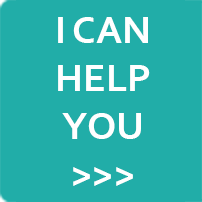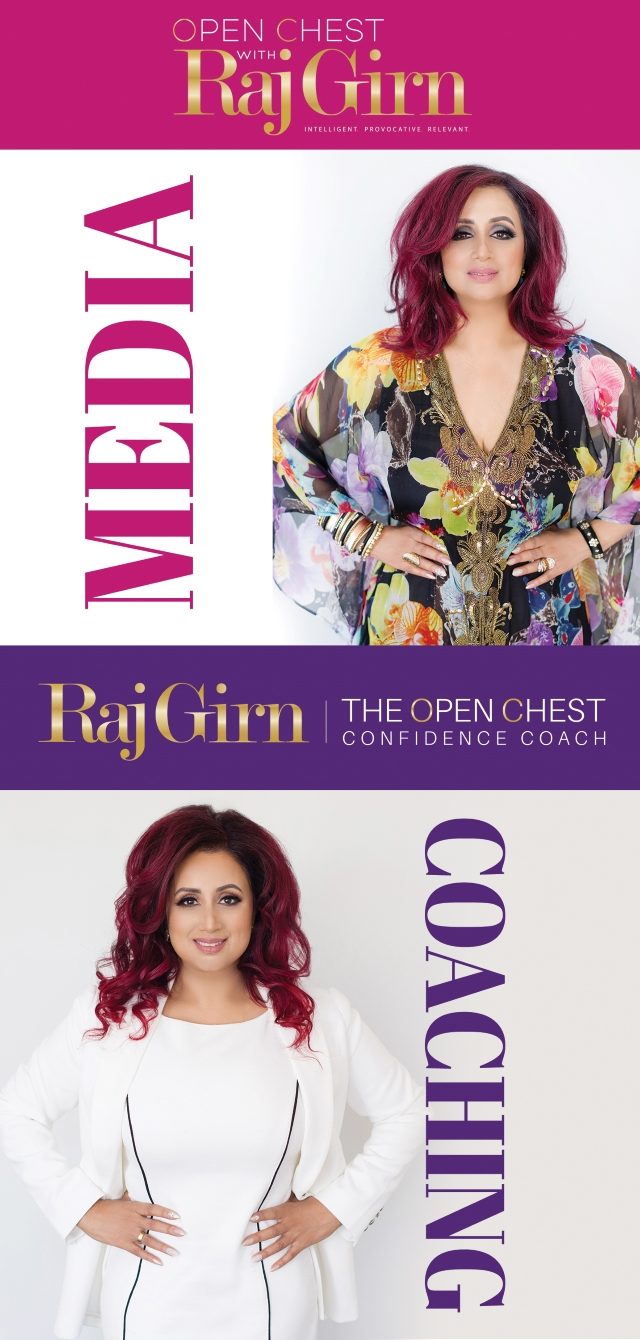I chatted with Dr. Amy Shah, who is a double board-certified medical doctor & wellness expert, specializing in allergy/immunology, hormones and gut health. Dr. Shah graduated Magna Cum Laude from Cornell University’s School of Nutrition and then went on to complete her MD and residency training at Einstein, Harvard, and Columbia University hospitals. They spoke about what led to her journey to combat fatigue that birthed 2 projects that had me wrapped in anticipation. Her new book called “I’m So Effing Tired”, which is releasing in March, with pre-orders in January. Her ‘Mind-Body Monthly Membership Program’ currently available at www.amymdwellness.com and designed for everyone who would like to create some overall changes in their mental, emotional and physical health . Take a listen (and tell everyone you feel would benefit to listen too), because her wealth of wisdom was on warp speed as we packed a ton of tips and tidbits about intermittent fasting, gut health, and even her opinion on vaccines.
So, folks, here we go. I want to first begin by welcoming you all to another exciting episode of Open Chest with Raj Girn Live. I’m your host Raj Girn and today’s episode is dedicated to another inspiring personality whom I believe we can all learn so much from. Before I introduce her, formally, I want to set the scene by telling you all that today’s topic as we near the end of this year, is about resetting our health and wellness goals to optimize the quality of our life. Among this kind of year where we’ve had so many unprecedented demands on us, oftentimes when we’re in situations like that, we look to garner expertise outside of our wheelhouse. That’s what I’m looking to bring to this conversation today. To help us navigate that, I’m excited to welcome and invite Dr. Amy Shah to the show. She is a double board-certified medical doctor, a wellness expert specializing in allergy immunology, hormones and gut health. Please welcome to the show the fabulous Dr. Amy Shah.
Thanks so much for having me.
You know, I’ve been following you for a while and I’m like a super-duper fan, so if I can do it, it’s because I just think you’re phenomenal and wonderful. So, don’t mind me if I become a little Bollywood in my head in my admiration of you, because I just love your journey and I want to share a little bit of that to kind of set context. Folks, Dr. Shah graduated from Cornell University School of Nutrition. She then went on to complete his medical doctorate and residency training at Einstein, Harvard and Columbia University hospitals. A chance accident changed her life and pushed her to think about what she wanted out of life in order to gain back the control of her well-being. Something that I know women, women who are mothers and have busy careers and are wives. We can all kind of really relate to life, just overtaking our well-being. So, you know, as we all do at some point in our life, something happens in our journey that kind of puts us in a position where we have to kind of evaluate our lives. And this is something that did happen with Dr. Shah. And really, that’s where I want to start the conversation. Doctor, can you maybe describe what life was like before that fateful accident for you just to kind of give context to the power of what happened after that? Give us a little bit of an idea on what your life was like.

Great question, Raj, I think a lot of women and men can relate. My life was full of external alarm bells and there was demands from work that I needed to finish that day. There were demands from school for my children. There were demands coming from everywhere, and what happened is I lost touch with my internal signals and I didn’t know what was happening. I thought I was just living a normal life and getting older and just busy. But I felt exhausted all the time. I felt moody. I felt like my fuse was very short. I could anything could set me off. I felt like I was bloated all the time. In fact, I was exercising hours a day to try to mitigate this, yet it was getting worse and worse. I thought, OK, I’m just getting older. All the doctors, I’m a physician myself, but when I asked my physician friends what was going on, they said, Oh, let’s check some labs. Oh, they’re normal. You are just normal. So, every day I just lived this rat race. I was literally I felt like I was on a treadmill. And at the end of the day, I would not give myself any grace. I would say I got to stay up and do this, and then start all over. I was using caffeine to get me going and then I was using anything to help me go to sleep. So, it was something I think a lot of people can relate to because now when I talk to people, they say, oh, that sounds like me, or that sounds like what I used to be like. I think that that’s where I was thinking that there’s something wrong. But I didn’t have time to pause and really figure what that was. I just kept on going and going and, you know, the accident that happened, it really was something that forced me to pause when I was off from work for the day’s aftermath. I just realized there’s something wrong. I need to change something in my health, I knew it was from within that I’d have to change it. So that’s where my journey really started on wellness, because I had all this medical knowledge, but nothing was explaining what was going on with me.
You know, it’s really interesting that you say that, Doctor. I mean, we talk about this concept of control and kind of what that means to people is different, depending on kind of the experiences or kind of the development that they’re on and what their goals are for their life for you. What was being in control of your well-being like, what did that mean to you?
I think at that time I didn’t know what it meant. I thought that I was doing everything right. I was eating a healthy diet. I was exercising like crazy. I was trying to be the girl boss, you know, mom boss. But I realized that, that I was taking something away from, honestly, my happiness and well-being. To me, being in control meant working 24/7, it meant achieving in every part of my life, my personal life, my social life, my career. Looking good, because with women there’s this other layer of societal pressures to stay in shape or look younger, look presentable or whatever it is. So to me, I thought that achieving the highest level at any all of those areas was success and having good control over my life.
Right. And, you know, it’s interesting you say that because like, what a tall order. To be able to have all of that consistently, moving forward in a positive manner. I mean, how is that goal even conceivable? Yet society puts us in a position where we feel we need to be better than men at a lot of the things that traditionally they were meant to do. Then we’re not allowed to let, God forbid, that any of the quote unquote, female parts of our role should suffer. So, I guess the pressure that you’re talking about, kind of brings me to a point that, you know, recently there’s been a lot on the Internet about the relationship between the mind and the body in terms of creating optimal health. This is an area of expertise that you have really kind of focused, your practice on and some of the products and things that you’ve been launching recently, which will get to a little later in the in the topic. Can you break down your understanding as a medical doctor, but also as a woman that realized that she needed to make a change from within? What would you define that relationship to be between the mind and the body and how it affects each other?
This is a great question Raj. This is the crux of it all. OK, so we have an energy trifecta in our bodies, every single one of us. That triangle is got health, its immune health and its hormone health. In the middle of this trifecta is our brain and our brain is hearing everything that’s going on and all three sides and responding. If there is a problem with your gut health, there will be a problem with your brain health and if there’s a problem with your immune health, there will be a problem with your brain health. For example, the immune system activation in your gut, they found that the same inflammation is found in your brain. So, when your stomach or your digestive system is mismanaged and most of us can say that at some point in our lives, our gut has been mismanaged, that inflammation goes to the brain and that inflammation affects your hormones. Then people wonder, OK, that makes sense, this is why I’m tired, because one of the parts of the trifecta is off balance, then that’s going to make you tired and sick. Women especially, you have an imbalance in one part of that trifecta at all times. And you’re always trying to keep that in balance. And once you learn the tools to do that, I believe that women can be really unstoppable.
So, if a person has an unhealthy gut, what does that actually mean? Is that the inflammation piece or is there more to that picture? Because, you know, the reason why I want to talk about this and kind of get a little bit more granular, is that there’s so much pop cultural propaganda out there on the market that I have the advantage of having you in this conversation. I just want to ask you some of these questions that for you may seem just kind of really fundamental, but for people like me who are the uninitiated, we really don’t know what’s right and wrong. So, tell us why having a healthy gut is actually very fundamental to the overall well-being of us as humans, physiologically speaking.
I love this question, Raj, because once you understand this, everything will become so clear. So, in our gut, we have an organism, billions of organisms living there. These gut bacteria, there’s also fungus and viruses that just live there and they live in complete unison with our system. The point of having those gut bacteria, what we call the microbiome, is that when we get sick or we see something that looks foreign, the gut bacteria is our ally in talking to our immune system, in talking to our brain and saying, okay, this looks foreign, let’s go attack this. This looks good. Let’s go and extract the nutrients. This looks this looks like a carrot. Let’s go and extract the nutrients from it. Oh, this looks foreign, a processed food. Let’s create a little bit of inflammation to figure out what’s going on.

So, the body is always talking to us then, Doctor.
These buds are in constant communication with our own body. If you think about it that way, we’re like, wow, we need an army of organisms. Now we know with Covid that we are not the center of the universe. When I understood that the microbiome, these bacteria are the center of our bodies, then it became so clear to me that, oh, that’s why we need to take care of these little bugs, because they actually make all the decisions for us. They’re talking to our immune system and without them, it’s like having no army and a war constantly going on. Our body cannot handle that.
Right, absolutely. A question just came in for you that I wanted to just address. So, is Dairy really bad for your gut?
Great question. It can be bad for some people I suggest that almost everyone, actually everyone go on an elimination diet themselves. We need to figure out what our food sensitivities are. You can spend thousands of dollars on a test, but the medical gold standard is in an elimination diet that you can do for free at home. So, this is exactly how you do it. You take certain foods that top three I would ask you to do first is sugar, meaning anything like a white sugar or anything in a jar or can. I’m not talking about fruit sugar that’s naturally occurring. Sugar, dairy and wheat, take those three out. For three weeks to four weeks, each one had been back in one by one and see your body’s reaction, your gut bacteria and your body’s immune system will tell you within a few days of adding it back in. Whether that is right for you
I love that. We go through our whole lives trying to figure out, what’s wrong with me? Similar to off the top of our conversation, when you said that you went through all these tests and everything was normal, like physiologically it seemed normal, but it wasn’t normal. And it took you on this journey to figure out how do I figure this out? Because clearly, there are so many people around the world that need this question answered. It’s how I came across you. There are so many problems that we deal with that have answers to them and we just need to go to the right people for it. So, thank you so much for that. I mean, that is something I know for sure that I’m going to try out, because I’d like to figure out, you know, things about my body that I just truly don’t understand. Please carry on.
And just to add to the elimination diet, if you wanted to do a full six food elimination diet, say you did these three and you’re like, okay, now I’m ready to move to the next three, or maybe you want to do all six together. That would be eggs, soy and nuts and shellfish. So, you could add all of those and do a full elimination diet. A lot of people for medical reasons do a full elimination diet. But I find with the three-elimination diet, you get so many of the results that you need in the short term. I found out myself that I can’t do a lot of wheat. When I added it back to my diet, I got the same symptoms that I had prior with bloating and stomach-ache. I realized it’s not that I’m allergic to it, but that I really need to limit the amount that I eat and maybe it’s the processing of it. As we know, modern processing of food is just so different and maybe that’s what’s irritating the gut. It’s not that you have celiac disease or such, but you have a food sensitivity. And so, how I live with my food sensitivity is that I avoid it 98% of the time. Then when it’s my birthday or it’s a special occasion, I will have it in moderation. I think that helps you guide your diet, your dietary choices. That’s what I would answer for the person who asked about dairy. I find that some people, when they do the elimination diet, they can add back hard cheeses and yogurts. But they cannot add back milk like drinking milk. So, try that when you’re adding it back, start with the hard cheeses, then go to the soft cheeses, then go to a glass of milk as a greater challenge.
I love it. This is great, folks. You heard it right here. Dr. Amy Shah, she is an expert in this arena of the so much more that we’re going be talking about. I want to ask you a question that a lot of people are thinking about right now. Why is there so much attention to gut health now? Is it like is this something new that has been discovered about this? What is it?
That’s a great question, too. In fact, you know, when I did my immunology fellowship, we learned about the gut microbiome, but it didn’t get as much attention as it does now because the research in the last ten years has exploded. And they realized, oh, my gosh, look, inflammation in your gut says you have inflammatory bowel syndrome that creates inflammation in your brain. Oh, look, you know, brain diseases are related to gut health. Oh, look, cardiovascular disease, obesity. Every time they try to link a diagnosis with gut health, it’s linked. So, for example, they did a study on obesity and they said, okay, we know that there’s some link between gut health and obesity, but how does that work? They found that if you take the gut microbiome from one animal who is obese and you transfer it to an animal that is lean right, that animal will become obese just based on the gut transfer, the transfer of microbes from one animal to the other. So, we now know that there’s a set of bacteria that seem to be associated with obesity. So, if you take the lean mice and you take their microbiome and you transfer it into the obese, that mouse becomes lean, right? It’s really ground-breaking. So, we realize, okay, we have a problem with obesity. We have a problem with cancer. We have a problem with metabolic diseases. And the microbiome seems to be the key to so many of those things. We really can change our microbiome through diet, through some of the things like I’d like to talk about like circadian rhythms sinking.
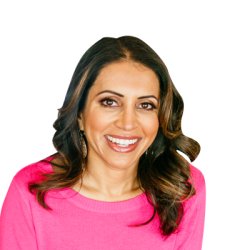
And so, what is that, Doctor?
Circadian rhythms are the center of our cells. Every single one of our cells, including the bacteria that live in our gut, they have about 24-hour cycles and there is night and day. Day programming is metabolism is, activity and then night activity is repair, renewal. So, every one of our cells operates on this 24 hours or half and half. They can’t do everything at once. So, they need to do the repair and clean up at night for humans. Now, if you are someone who eats late into the evening, you are doing activities late into the night, you’re working with blue lights late into the evening, you are working a shift through the night. You are disrupting the natural circadian rhythms in your body. And we now know that this affects brain health. This affects gut health. People die 10 years sooner than people who have optimized their circadian rhythms. We realized circadian rhythms when we talk about hormone imbalance for women and we have all these supplements. Basically, GNRH is our master hormone that goes to all the different parts of the body. This is a pulsatile hormone. This hormone is so sensitive to so many things, including stress and also circadian rhythms. So just by fixing your circadian rhythms, you can improve your health in ways that you had never imagined. For example, getting sunlight 20 to 30 minutes between 8:00 a.m. to 12:00 p.m. So that might mean two to three minutes direct sunlight outside or just daylight, it doesn’t have to be sun. I know you’re in Toronto things might not be that sunny and then getting the rest of your daylight through a sunny window like I’m sitting at right now. Trying to get 20 to 30 minutes in the front part of the day. And then at the evening time, two to three hours before bed, really turning down those blue lights, putting blue light blockers on all your devices, maybe turning off the TV two to three hours before bed, stop eating, preparing your body for repair renewal. As soon as your body knows that you are not eating anymore, it can start those processes. Right. Sleep quantity and quality is such a huge part of circadian rhythms thinking because if you get good quality sleep at the right times also you can really improve your health without any medications at all.
Wow. This begs so many other questions. But I want to stay on track. I want to talk a little bit about the relationship between, you know, some of your expertise, allergy, immunology, hormones and gut health. What is it that people need to know?
People need to know that, you know, when we’re listening to our external alarm bells all the time through social media, news, our own lives, our jobs, our kids, we lose sight of our internal signals and everything I’m saying over and over again, when you want to improve your health, you need to tune into those internal signals. That means turning off the noise in your head. Maybe that means when you go out for your sunlight in the morning for two to three minutes, you turn off everything else and do a little bit of mindfulness. Scientifically, we call this Vagus Nerve Stimulation. Vagus nerve is a nerve that is connecting our brain to our body. We need to stimulate that at least once a day, if not a few times a day. So, I recommend that when you go out and get your daylight for a couple of minutes, you spend a few minutes on gratitude, on prayer, on chanting, on breathing, whatever it is to stimulate your vagus nerve, start tuning into those internal signals. What is your body telling you? What is your mind telling you? I’ve had people tell me they have quit jobs; they have left relationships. They have changed their life just by starting to tune in to the internal signals, because we ignore those all day long and we end up living a life that we really don’t love because we don’t even know what our internal signals are saying anymore.
You know, it’s really interesting what you’re saying here, because, oftentimes people when they talk about internal wellness without relaying that there is a distinct relationship between internal psychological and mental, spiritual wellness and the physiological state of us as humans. And here you are saying that there is a direct correlation and we don’t oftentimes feel that we have to work on them both at the same time. But what I’m hearing you say here is that we do if we want optimal wellness. Can you comment on that a little bit for us?
Absolutely. I think the biggest thing we’re missing in Western medicine is that piece of mental and spiritual wellness, not just physical wellness. Eastern medical practices, Chinese medicine, Ayurveda, happiness, being happy is part of wellness. In America or in Canada or in the modern world. You can be super, super unhappy, but physically look extremely healthy. It’s considered health in this modern world. So, what I’ve learned myself the hard way is that you cannot be in good health without the mental and spiritual portion of this. It’s not optional. It’s not sleep when you die, not meditate when you die or when you retire. It’s spiritual and mental wellness are the key missing pieces in modern wellness today. We don’t have a good pulse on this, and we don’t have the right tools. A lot of people come to me from the standpoint of weight or being in shape, because we in our modern world are bombarded with these messages of physical health of what that looks like and what I end up doing for people is telling them that you cannot attain that physical health or at least be happy with your physical body until you add a portion of mental and spiritual health. It doesn’t mean you have to become a monk. It means that a few minutes a day you add in that portion, that vagal nerve stimulation, like we say in science, that piece where the wellness trifecta, that brain gets connected with all the other parts of your body and that in the most scientific sense, is essential to your body’s functions.
Absolutely. I just had a question come up. Can you can you see that question right there, Doctor? I think you would be the best one to read this because I don’t even know what this means.
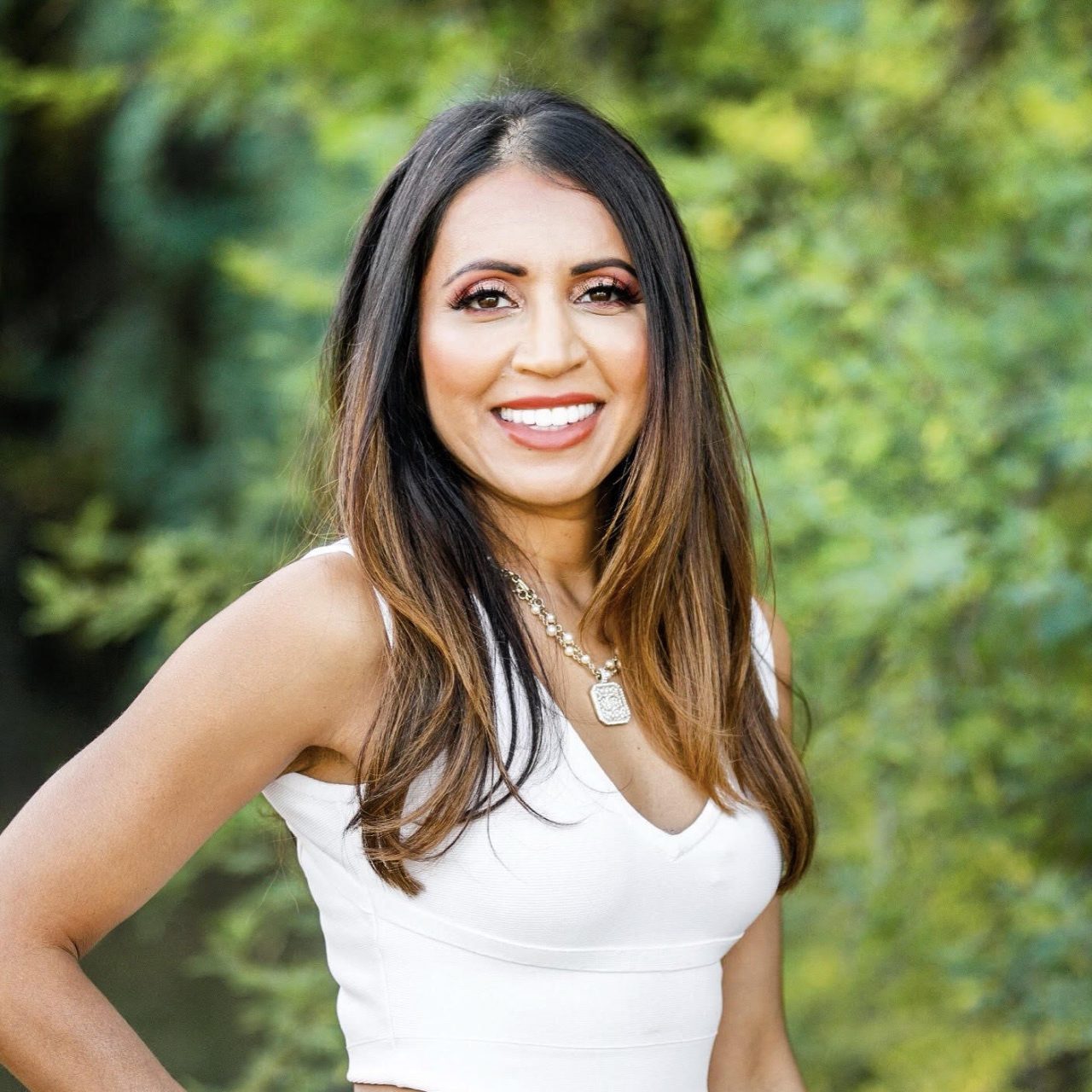
Yes, okay, so she said ‘SIBO diet as you wake up, gastroparesis diet from morning to night, please advise?’ So, SIBO stands for small intestinal bacterial overgrowth. I’m not 100 percent sure what she’s asking, but what I’m thinking is she may have a diagnosis of both small intestine bowel overgrowth and also gastroparesis. So, what those mean is that your GI tract has multiple issues. One is that you have bacteria that shouldn’t be there. I think the easiest concept is to think about it like good bacteria, bad bacteria. The bad bacteria are outnumbering or dominating the good bacteria. So that’s how you could think about it. And a gastroparesis means a slowing of the digestion in your stomach. So, sounds like she has advice about two separate diets because there’s two separate issues going on. And so, of course, as you know, Raj, I’m a physician, but I can’t give medical advice, personal medical advice to her but I can tell you to try this elimination diet that I we talked about earlier in the program and also try circadian fasting. So, what we had talked about is really empty your gut two to three hours before bed, meaning that just stop eating two to three hours before bed and don’t eat for 12, 14, 16 hours. Give your GI tract a really nice break. We know that when an animal is sick, the first thing you do is stop their food. You give them gut rest, you let them recover. So, gut rest is so essential to helping your intestines kind of recover, renew, so doing some kind of circadian fasting. So, nothing too crazy. And then changing your diet to exclude some of these processed foods is something that I can say that anybody who’s suffering from GI issues can start with. I’m not sure if you have any further follow up questions, but you can add them below.
Absolutely perfect. Let’s talk a little bit about something that you are absolutely an expert in, in addition to everything we’ve just talked about, and that is intermittent fasting. I got to ask you about this, because, you know, I’m one of those women, I’m 50 years old now and I’ve yo-yo all my life with weight. Part of that process has also been that, you know, I got pregnant, I have I had a child. And then hormones kick in different differently pre, post pregnancy for women out there who have children. They know this full well. With me, I’m in that place now that many women who, you know, will be listening to and watching this are, where we kind of come to that part of our lives where, pre menopause, menopause starts to kind of kick in and keeping that weight off becomes so much more challenging than it ever was previously in our lives because of all of the changes in our hormones. I’d love to hear from you in terms of intermittent fasting. For a case like mine, for example, and also just generally differences between men and women when it comes to intermittent fasting, can you shed some light on all of this? Because, again, this is another one of those pop cultural topics. Everybody is talking about intermittent fasting. And not so many people kind of really know what they’re talking about and we don’t really know who to listen to. So, since you are the expert in this area, too, I got to ask you about intermittent fasting. What do we need to know?
Great question. Intermittent fasting was the most Googled diet in 2019. There are many different types of intermittent fasting that are talked about loosely. But first things first. I want to tell everyone that intermittent fasting the term is like saying the word exercise so it can mean all different types. It can mean three day fast, 24 hour fast or 12 hour fast. So, remember that intermittent fasting when they say intermittent fasting is not good for women. Okay, well, what type of intermittent fasting are you saying? People love the click bait. What has happened over the last few years on the Internet, especially because of social media, is that the more contrarian and crazier the idea is, the more attention it gets. So, people love to see intermittent fasting. Oh, yeah, it’s the most Googled. It is bad. It is bad for women. And then you look into it, you say, oh, okay, why do you say it’s bad? So, what they say, oh, there was this animal study. And I’ve asked some of the experts who keep talking about this and they said, where are the studies that show that it is bad for women? Because I’m ready to learn more from what I understand, first of all, women are always excluded from the research. So, if there are any research articles, I would love to see that. What it’s always quoted is in animal study when they made the animals fast for 24 hours. Now, rats have metabolisms that are three times as fast as humans asking rats to fast for 24 hours they’re making that is equivalent for a woman to be fasting for three days straight. And then they found that, oh, if you fast three days straight, you know, for a long period of time. So, 12 weeks in mice time is about 36 weeks in human time, right? So, talking about three years of fasting three days at a time every three days. And then they found that this had a negative effect on rat’s ovaries. And I said, well, that’s no surprise. I mean, if you ask me to fact even 24 or 48 hours every other day, you can imagine that there’s going to be consequences, right? So, there are all the signs on the Internet is junk science. It’s people who are trying to get more likes and clicks and attention for their ideas that are based on the wrong studies.
Okay so, what do we need to know as women? What do we need to know as men? And what do we need to know as women who are kind of in that menopausal phase of their life?
So, remember that when I alluded to before, we have in our brains a GNRH hormone pulse, and that is the gonadotropin-releasing hormone that starts a whole cascade of hormones all the way from your thyroid to your adrenal to your ovaries. That one is very, very sensitive to stress, to all kinds of changes in your body. So, you don’t want to start exercising or fasting extreme from the beginning. We all know that exercisers who do extreme exercise will throw off their hormones and they will stop ovulating and they won’t have their periods. We know same thing with excessive fasting. Women are not men. We cannot be doing extreme stressful activities. Our hormones are very sensitive to that. So that being said, starting a 12 to 14 hour fast at night, according to circadian rhythms, is natural. It is actually what we should be doing. We have to turn back. We eat 15 to 16 hours a day on average. We eat every night to late into the evening and then start eating as soon as we wake up. So, what I ask women is simple. Instead of 15, 16 hours, which is the norm, start eating 12 hours and fasting for 12 hours, see how it starts to affect your body, then move up from there. You don’t start running a marathon on day one with like 25 miles. You start with three miles or one mile depends on the person. So, depending on your health status and what you’ve been used to, just start super easy and start circadian style. So circadian fasting is what I really recommend is because we’re using the power circadian rhythms, we are doing the intermittent fasting, we’re combining the two. That’s where you can start and then you can branch out to whatever you want. So, it’s like saying exercise, hey, start with a one-mile walk, and then if you want to go for that marathon, go for it. If you want to go do lifting weights, go for it, but start where it makes sense, where you’re going to get universal benefit and then move from there, right?
Absolutely. @Reena37 is asking, can we take meds and vitamins during fasting window?
This is a great question I get this all the time. So, the truth of the matter is, we don’t know. We don’t have enough studies to tell us which vitamins are okay, and which are not. In general, I recommend that people stay less than 40 calories when they’re in their fasting state. So, if there is a medication, you must take first thing in the morning upon waking. If there’s a medication that you’re taking just do what your doctor tells you. However, we do have that leeway of about 40 calories. So that’s when you know a little bit of tea or coffee with a splash of almond milk or whatever milk you want could be okay. The benefits of fasting, we think, continue even with a very small amount of calories. Just make sure they’re not sugar based calories because you don’t want to eat like a sweet that will automatically get you out of the fasting zone. You want to eat something like a half a tablespoon of nut butter. That’s about 40 calories. A little bit of avocado mash. That’s about 40 calories, maybe not a couple of nuts to get you through or just have coffee with a splash of milk, that’s about less than 40 calories you can go through and make fasting a lot more doable for so many of us that are like, I can do this if I just have, you know, that little thing at night or that little bit of coffee in the morning. So that’s what I would recommend to her.

Perfect. There’s a question here that I’d also like to bring to your attention, Doctor. How is the circadian fasting like she wants to know, how do you do that? I mean this is where part of your hours are while you’re sleeping basically, right?
Yes. The best thing about circadian fasting is that what we’re trying to do is turn back the clock of about 50 years and especially one hundred years ago, we were always doing fasting. We didn’t have refrigerators and late night eat and Netflix and with popcorn and all that stuff. So, what I tell people is we’re doing something that two hundred fifty thousand years ago. Our bodies have genetically been programmed to do. Just taking a break at night from food and not eating late into the evening. And maybe you stop at 7:00 p.m. instead of 9:00 or 10:00 p.m. you have that last dessert or glass of wine and you’re done by seven and you don’t eat again until seven, eight or nine a.m. and you give your body a nice little break. Maybe you go outside and get your nature walk before you start your food for the day. And so, your body gets a good amount of rest. We see a multitude of inflammation, insulin, cardiovascular, brain benefits from just that short window fasting.
Okay, there’s been a couple of people have asked this. When they go on diets, especially the intermittent women are getting hair loss. What do you do to give them in terms of advice there?
So, hair loss is a complicated topic, there are people who when they’re going through autophagy, so one of the things that fasting activates is a clean-up of your cells. And this is a good thing. So, clean up your cells with skin and hair can be shedding the skin and hair. So, that’s a good thing. However, if you are concerned, you definitely want to make sure that you also check the levels of vitamins in your blood. Easy blood test to check for, you know, really, really common causes of hair loss, which is vitamin deficiencies. So sometimes when people start fasting, they start really changing their diet. Checking your blood tests and just looking at the levels of zinc and vitamin D and iron and B vitamins, that could be an easy way for us to look for deficiencies that cause hair loss. Now, in general, intermittent fasting is great for hair and skin because when you clean up the insides of those skin cells and those here, so that means there’s new growth and we want that. There’s actually a study that every woman is going to love. If you intermittent fast in a circadian fashion, so circadian fast, you have less skin damage than someone who is eating late into the night and not doing intermittent fasting. Why? Because just like our internal cells or skin cells also have time that they can protect themselves from blue light. So during the day, they have the mechanisms up to protect ourselves from blue light damage, which cause aging wrinkles and, you know, older skin when it’s nighttime and you’re getting tons of blue light, like with overhead fluorescent lights, with computers, with TVs, you’re damaging the skin much more so in that time. So, you want to remember that this is going to help your hair and skin by turning off those lights, by stopping the food, by going to bed in the dark hours. This is all a healthy process that’s going to help all parts of your body.
Absolutely. And I’m going to just ask you one more question, Doctor, because and I’d like to talk a little bit about your two interesting topics that I’d like everybody to know about. So, let’s talk a little bit about immunology. It’s been the number one discussion of the year, as we know, with this pandemic that has basically, you know, shrouded our entire existence this year. People are at cross purposes as to whether they should get the vaccine or not. Now, I’m not asking you to tell me your opinion on whether you should or shouldn’t, because really, as a doctor, I know that that’s know we know where that topic would go. What I want to ask you is, are you at liberty to share your opinion on what people should be thinking about before they make that decision?
Yes, so vaccines are obviously very charged topic, and what I always tell people is that there’s no right and wrong answer with when it comes to this new vaccine, because, of course, vaccines usually take years to be developed. These multiple probably are being developed at superspeed. Therefore, that leaves people with, you know, really a lot of questions. So, what I believe is that the new vaccine or vaccines multiple will have to prove is that they are safe and effective, whatever it is. And the scientists, I believe you must trust the scientists that you trust. You don’t have to trust all scientists because they may be saying different things. Take the few people that you trust. And I will be doing the research. I will be giving my opinion for people who want to hear it, take these people, have them go through the science. What we don’t know, Raj, is the long-term implication right now. We do know that we get billions of doses of vaccines every year with a complication rate that is extremely low. So, we know that there is a possibility of a vaccine that could be quite safe and the consequences of not getting the vaccine may be higher than getting the vaccine. So, what I’m going to do for my family and what I will do for my audience is give you the pros and cons, because I have a father and mother who have diabetes. They are older. They are really changing their entire lifestyles during this pandemic. And it’s quite impactful on their mental and social well-being. If I think it’s safe enough for them to get this so that they can improve their lives, I will do it for them. But it’s a different story for a different group of people that may not be needing to take those precautions. We’re going to we’re going to see where that goes. I’m very hopeful that not only vaccine solutions, but we have a few medication solutions that are very, very promising. There’s a monoclonal antibody that has just been approved by our American FDA that is quite effective at neutralizing the virus. I love that because what it does is it basically does not do anything to your own body. It basically goes and binds to the virus. And there’s a spike protein that the virus needs to put into our cells to get in and it just blocks that spike.
Why are we not all getting that? That sounds amazing.
I mean, this to me is quite a bit better than getting a vaccine. Why would we not say, okay, you got the coronavirus, let’s give you a monoclonal antibody to neutralize it so that it doesn’t progress in a negative way. If you get it and you get mild symptoms, you never need the monoclonal antibody. If you start to progress or you’re elderly or whatever, then you should get this monoclonal antibody. This one is already approved, right? So, we are hopeful that in the next few months and I would like to be an optimist on this, but it will be very difficult through this next holiday season. But I think 2021, we’re looking at some solutions that could make our lives a little bit easier when it comes to the pandemic.
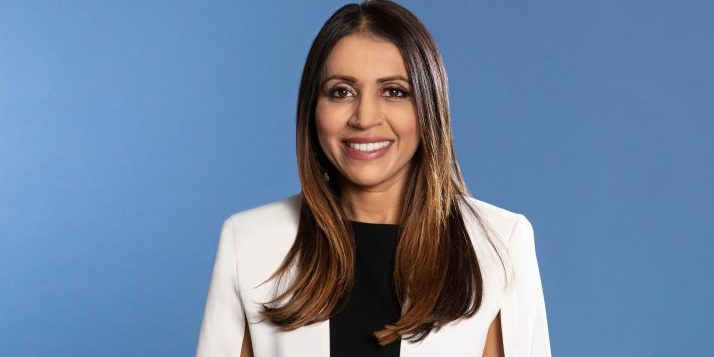
Thank heaven for that, because, you know, it’s just all the other reverberations, you know, the economic disaster that it’s created and just the mental trauma that it’s created. There are just layers upon layers of residual effects that are probably going to go on longer than even the medical implications of what Covid has done. And that, of course, is a whole other show, which I would love to have you back to talk about. But I want to get into a couple of projects of yours, which actually I’m quite excited about. So, one is a program. You have a number of them available, but the one that I want to bring to everyone’s attention is the one that is the Mind Body Monthly Membership Program. I want you to tell us a little bit about this, because there is a special on it right now is a great opportunity for people that, you know, like me, are really into kind of having a guru for want of a better word or having a lot of mentorship with some consistency to kind of keep me on the right track. Let’s talk a little bit about what this is and what some of the benefits are for people who would like to participate in it.
So, I love this. Basically, think about it this way, Okay, we get information from all these different sources all the time, but we really don’t get personalized information. We don’t get mind, body, health information. So, what I was finding in my programs, I have a two-week program. I have all these programs people were asking to keep on going. They are like, okay, two weeks are done. Let’s just how do we keep it up? How do we get motivation? And to me, this is something I work on constantly in my own life. I’m constantly reading the literature and constantly talking about this and meeting experts. So, I thought this is brand new and just launching. In fact, Thursday is our first meeting. It’s really about how do we optimize our mind and our body? Those internal signals that we were talking about that doesn’t come, you know, right off the bat we have to really work at it. What are the tools? Where the techniques, what do the experts say? So, it will be sessions with the small group. It will be resources. It will be interviews. It will be chats, Q&A’s, it’ll be tools that I use that I recommend offline, because I think that what happens online is sometimes, I’m using something, but I’m just experimenting with it. So, I might not be talking about it to the full audience. These are things and tools, kind of like you said, like we hear these voices all the time about health and wellness. But who do we listen to? And I welcome all different types of opinions and topics that we can cover. Basically, everybody can go together, and we’ll talk about different topics and how to improve our overall mind body. Raj, I feel if you can get that piece right, there’s nothing stopping you. There is nothing that can stop women in this world, because I’m convinced that the one thing that holds us back when we are held back is our mind body disconnect. We’re listening to outside voices. We are internalizing that. But once we get the power from within, there’s no stopping us.
Absolutely. And I’m a firm advocate and believer in that as well. I really believe that you need to understand how one thing relates to another. And there is no silo in life. Like, even doing nothing has a result around you. That’s wonderful. So, people are asking, what is this program called? How can they access it? Can you give us some information about that?
So, if you go on my Instagram site, it’s @fastingmd and you click the link in the bio. It’s one of the links that come up. It’s the Mind Body Monthly Coaching program. And it’s like I said, the way I’ve structured it, this is my life’s work. I have told people that, hey, you try it out for free for two weeks. You see if you like it, if it’s not a good fit, no questions asked, you just can leave, and you can leave it any time. Like I said, it’s my life’s work. So, it’s not something that I’m trying to create a product or a billion dollars around. It’s something that I’m doing because I believe that it can change a lot of people’s lives.
Right. And, you know, that’s the ultimate service. You know, sharing the wealth and wisdom, which is wonderful. So, folks, you heard it right here. Just go check out fasting M.D. on Instagram. And the link in bio will take you directly to where you need to go. And like, you’ve got nothing to lose. Go check it out. I definitely am going to be one of those people, Doctor. The final thing is, I mean, I’m so tickled pink about this. You are launching a book in March of next year and it’s called I’m So Effing Tired, honey. What an awesome title. Talk to us a little bit about this, because I know that you’re going to be opening up for pre-orders on this in January, right?
Exactly. So, Raj, I have talked about this for a long time. However, getting a book deal in the US is a big deal. So, I have gone through many rejections. There are many naysayers. And finally, we are able to get the message out there, and I am so excited, I think it is helpful, it is fun, it is easy. It is meant to be something that is easily readable, not like a textbook. It’s a doctor who is your friend talking to you as your friend. So, I am going to be talking about much of this. Basically a deep dive into the topics that we cover today, how to reset your hormones, your gut health, your brain health so that you can get everything working together in an easy, small fix kind of way.
Absolutely. Oh, my God. I’m dying for it. So where can people actually sign up for this come January or do you have like a website where you’re taking emails?
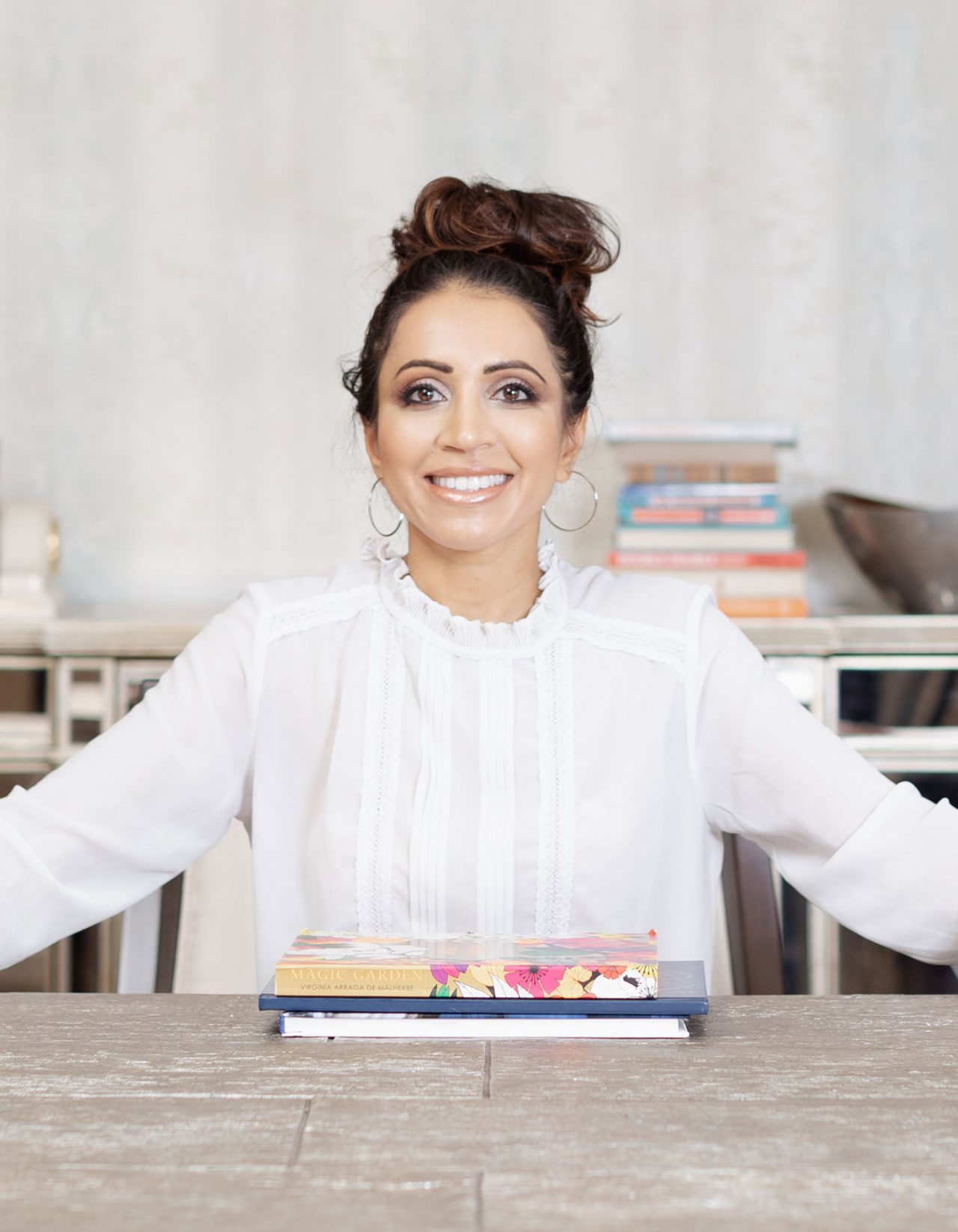
Yes. So, my website, Amymdwellness.com is where you can sign up for updates and announcements. We’re putting together an amazing launch package. So prelaunch packets, if you pre-order, you get a whole bunch of things that would be exclusive content for free beforehand. So that’s what we’re putting together right now. And I can tell you it’s going to be awesome. You can go on my site and just sign up for updates and we’ll be announcing things on social on the newsletter. I don’t know if you do this Raj, but I’ve committed to keep in touch with my email group much more because I think I hate getting emails, but I realize I love getting emails from my friends or personal emails or personal recommendations. So, I’m turning my emails into kind of a mini version of my book where I talk to you and I tell you what’s on my mind. I give you some exclusive content. So, go check that out.
Oh, my God, I’m so excited, folks. You heard it right here. Dr. Amy Shah, she has been with us for the last hour. We’ve talked about everything that we need to know about health and wellness within the areas of immunology. We’ve talked about intermittent fasting. We’ve talked about kind of the mind, body, soul, connection to the kind of physiological aspect of who we are and how that comes together. There is a wonderful course that Dr. Shah has. Go check out her Instagram again. That’s fasting M.D. Go to link in bio. You’ll see it there. You’ve got nothing to lose. It’s just a great way to kind of, you know, number one, get information. Number two, be educated by someone who knows what they’re talking about. Number three, just be a part of a community. You know, that peer kind of community is always a good way to feel motivated and inspired and also go sign up at the website, give it to us again Dr. Shah what is your website, because people can sign up. You have a newsletter there where you send out interesting information. And also getting a part of your email list will allow people to get information as you release it regarding the book. So, what is that website again?
It’s Amymdwellness.com. It’s on my fasting MD Instagram also, there’s a link there to the website and to sign up.
Wonderful. Thank you so much, Dr. Shah. You are just a wealth of wisdom. And I’ve got to have you back on because I know there’s so many other things we can talk about as well. Thank you so much.
I would love that. Thank you so much for having me.
Absolutely. You are absolutely wonderful. Please go follow fasting MD folks, if you’re not already, because you know this lady, she is a force to be reckoned with. And I’m a super fan. Thank you so much.
Thank you so much for having me.

